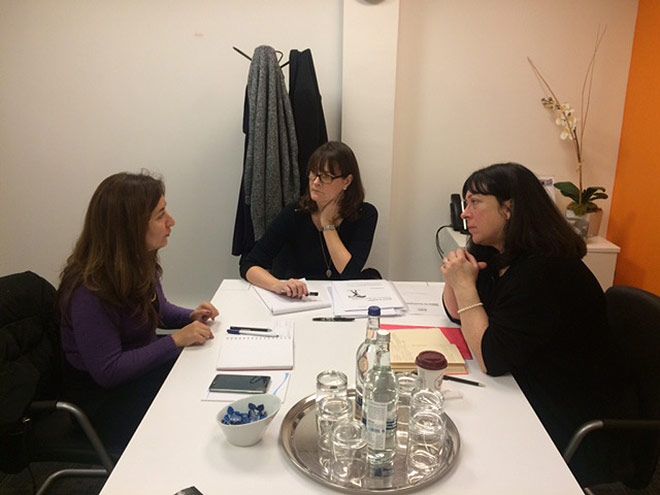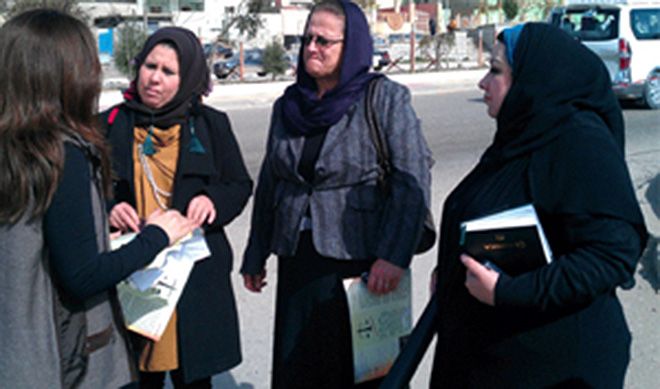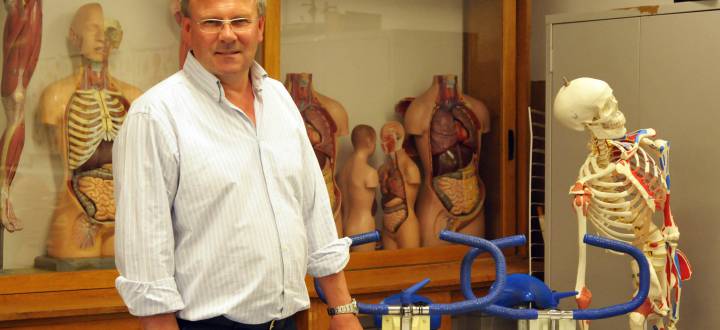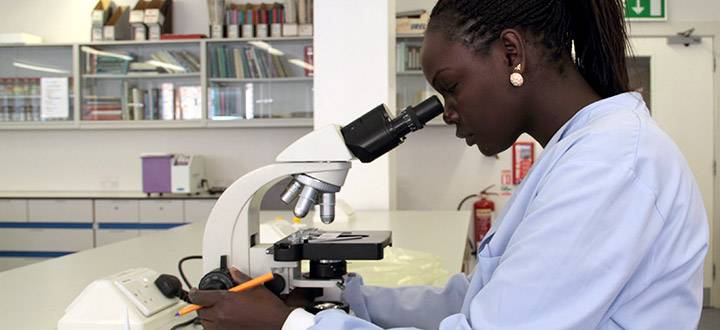Expressive writing workshops in Iraq
Expressive writing workshops in Iraq help traumatised victims recount their suffering.
The cruelty of war stretches far beyond the battlefield. Many women who have suffered sexual violence in Iraq now find that the process of seeking justice through the legal system inflicts new trauma on them as they are forced to relive their experiences. But thanks to research at Kingston University, they are now able to tell their stories in ways that avoid further harm, and even help alleviate their suffering, through expressive life writing.
Expressive writing is a particular type of coping strategy often used for survivors of trauma, in which they write out their thoughts and feelings about a stressful or traumatic experience in various ways. Research with victims of traumatic experience in non-conflict settings and with combat veterans has demonstrated that the process of writing down these reflections helps survivors 'detach' from negative experiences by turning them into tangible, shareable stories, thus increasing their sense of well-being.
The intrusive documentation process required for legal justice cases of sexual violence often causes further harm to those who have already survived terrible ordeals. Traumatic experience disrupts normal memory processes, leaving victims with a fractured sense of their past. The reasons for this narrative disruption in post-trauma are complex and continue to be an area of debate but the felt effect on survivors of trauma is clear.
How the Expressive Life Writing Project works
 The Expressive Life Writing Project led by Kingston University's Dr Meg Jensen, in collaboration with Dr Siobhan Campbell at Open University, is working with a local human rights group, the INMAA, to offer bespoke expressive writing and telling opportunities to women victims of violence and trauma in Kirkuk Governorate. The project will also interrogate current best practice guidelines on the documentation and investigation of such rights violations and suggest adaptations to existing protocols for the interviewing process.
The Expressive Life Writing Project led by Kingston University's Dr Meg Jensen, in collaboration with Dr Siobhan Campbell at Open University, is working with a local human rights group, the INMAA, to offer bespoke expressive writing and telling opportunities to women victims of violence and trauma in Kirkuk Governorate. The project will also interrogate current best practice guidelines on the documentation and investigation of such rights violations and suggest adaptations to existing protocols for the interviewing process.
"Storytelling is central to the advancement of human rights in our time," says Jensen, "but how these stories are elicited, by whom, using what protocols and under what conditions is at least as important to the success of that humanitarian project as their dissemination."
Developing best practice guidelines to avoid further harm
In the development of the initial research and drafting of materials for the project, Jensen drew on the best practice guidelines published by the Foreign and Commonwealth Office in 2014; the 'International Protocol on the Documentation and Investigation of Sexual Violence in Conflict'.
 The Protocol requires extensive information to be collected from the survivor/witness before the process of documenting even begins. When Jensen began to work more closely with local stakeholders she found that this interview process, while suited to legal purposes, was neither practical in terms of the collection of data, nor beneficial to victims. She found using such methodologies could disrupt the linear life narratives and that a survivor/witness will likely encounter many difficulties when trying to respond to questions presented in this form. Interviewers may unknowingly be doing harm as they push witnesses to recall terrifying experiences in a manner that is either re-traumatising or simply impossible to remember or recount in the ways elicited by the interviewer. Moreover, while the Protocol advises interviewers to avoid any considerations of 'why', when there is much evidence to support the view that victims of trauma cannot begin to heal until they are able to construct some narrative of meaning for their experiences.
The Protocol requires extensive information to be collected from the survivor/witness before the process of documenting even begins. When Jensen began to work more closely with local stakeholders she found that this interview process, while suited to legal purposes, was neither practical in terms of the collection of data, nor beneficial to victims. She found using such methodologies could disrupt the linear life narratives and that a survivor/witness will likely encounter many difficulties when trying to respond to questions presented in this form. Interviewers may unknowingly be doing harm as they push witnesses to recall terrifying experiences in a manner that is either re-traumatising or simply impossible to remember or recount in the ways elicited by the interviewer. Moreover, while the Protocol advises interviewers to avoid any considerations of 'why', when there is much evidence to support the view that victims of trauma cannot begin to heal until they are able to construct some narrative of meaning for their experiences.
The response of the Expressive Life Writing Project is to intervene at the point of INMAA's initial interview with prospective clients, by utilising an implicit commitment to avoid inflicting further damage on those at risk. This has been done by collaborating with local stakeholders on the development of tools for gauging the emotional impact of rights violation on the one hand, while on the other hand enabling the witness/survivor to produce and integrate into their whole life stories a narrative of that violation that supports a sense of agency and detachment, thus benefitting their recovery. A handbook, developed by the project and produced in both English and Arabic, is used by the mobile human rights team. It contains original Expressive Life Writing exercises and storytelling, and is accompanied by guidelines enabling them to track the efficacy of these exercises in alleviating key symptoms of trauma in the women who choose to participate in this study.
What next? Impact for the future
Ultimately, quantitative and qualitative forms of feedback gathered as a result of the implementation of actions in the handbook will in turn inform the development of a virtual learning environment toolkit containing original research-based and 'road-tested' teaching materials for effective, evidence-based therapeutic creative life narrative workshops for victims of trauma in post-conflict contexts. The findings will be presented to the FCO at the conclusion of the project, opening a dialogue will that seeks to influence policy in the matter of taking testimony from victims of trauma.
Funding
Both this documentation project and the research were funded by the UK Foreign and Commonwealth Office (FCO), Human Rights Fund.
Collaborations
The project was developed with the support of Beyond Borders Scotland, a not-for-profit organisation facilitating international cultural exchange, and INMAA for Development (INMAA), a non-governmental legal aid organisation based in Kirkuk Governorate, Northern Iraq.
Publications
A fuller overview and examination of the various literary/cultural, bio-medical, psychological and neurochemical sources of this project can be found in the Women in Conflict: Expressive Writing Project eBook.
Contact us
- For non-student research enquiries, email the Research Office
- Research contacts
- Graduate Research School contacts
- Business and Enterprise contacts
- How to get to Kingston University
Contact us
- For non-student research enquiries, email the Research Office
- Research contacts
- Graduate Research School contacts
- Business and Enterprise contacts
- How to get to Kingston University


